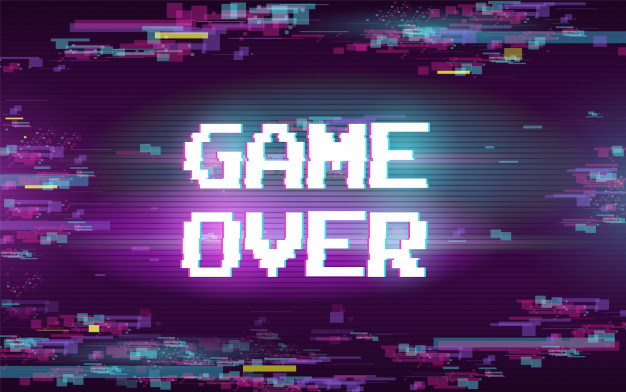Our group was initially drawn together due to a common interest in designing a story-driven and exploration-based game. The concept of Riley vs the Book Burners was originally inspired by the Kingdom Hearts series, which follows a hero that travels between different worlds based on Disney films. Riley, the titular character of our game, instead travels between worlds inspired by famous literary works. The intention was not to depict accurate recreations, but rather loose adaptations by offering a fresh spin on familiar characters, often exaggerating or altering certain qualities, while attempting to respect and retain some of the major themes of the source materials. It is our hope that younger students will find our game a dynamic way to reflect on literary works they have studied or perhaps inspire them to do so, while also appealing to a wider audience.
Once the premise was decided on, we wanted to add an emotional aspect to the game. To accomplish this, we included points throughout the game in which Riley unlocks some of her lost memories that often revolve around her difficult experiences with bullying. These memories thematically parallel many of the events and characters she meets throughout the game, akin to Dorothy’s subconscious manifestations in The Wizard of Oz. Riley’s personal growth becomes a major theme throughout the game as she gains the confidence and perspective she will need to deal with her struggles in the real-world. Another factor we felt was important to appeal to our targeted age group was to include gender and racial diversity throughout the game, including the use of gender-neutral pronouns in some instances.
This project was extremely collaborative from the beginning. Most of our early brainstorming, outlining, and graded assignments were completed live over Zoom, and throughout the project we met live nearly every Saturday night, as this was the only time that worked for all our schedules. We also maintained constant contact throughout the week via Whasapp. We did not have defined roles, each dabbling in various aspects of game development, such as designing maps, characters, quests, dialogue, hidden items, and playtesting; however, we did start to divide our focus later in development to ensure designs were consistent.
After designing some of the environments in the second world, I mostly turned my attention to the first world based on C.S. Lewis’s Narnia. My role began to focus more on writing much of the game’s early dialogue and cutscene sequences, as well as storyboarding much of the game’s broader narrative to ensure a consistent plot thread throughout. Additionally, I worked on much of the design and testing of the character classes and enemy encounters which required a lot of fine-tuning. This was my first time designing a game, so an attempt at detailing everything I learned would be a long list. My experience in creative writing helped in developing the game’s concept, world building, and narrative, and my experience with RPG’s helped with designing and balancing many of the game’s features. An area of weakness that I was able to further develop was in the visual design of some of the environments, such as the wilderness area in the second world and the interiors of the Inn and Weapon Shop.
RPG Maker was identified early as the software that we wanted to use due to its ease of use and classic JRPG-inspired designs; however, we remained open to exploring other options if it did not meet our needs. After watching a lengthy series of tutorial videos, it was relatively easy to learn the basics of RPG Maker, although there remain numerous features that we did not explore that enable the development of much more complex features. Finding a way to work collaboratively was the biggest initial challenge, as RPG Maker does not include any collaboration features. Our solution was to create a group Gmail account and utilize Google Drive to simultaneously sync our saved changes. While the updates were nearly instant, we quickly realized that working simultaneously on the project could result in erasing another group member’s work. Time zone differences worked in our favour as we were able to stagger who was working on the project. We underestimated the time investment required and had to drastically scale back the scope of the game. This was primarily due to the detailed directional inputs required in dialogue, cutscenes, and quests, as well as the immense amount of testing required to ensure difficulty was balanced, features were working as intended, and accounting for all possible player choices during exploration.
I am extremely pleased with our design process and finished project, but there are some things I would do differently in hindsight. Despite having a large amount of default assets, it was somewhat difficult to design accurate representations of minority characters in RPG Maker. We were also unable to design custom enemies. As such, I would have liked to explore many of the free downloadable plugins available. We tried to address these limitations through humour and meta jokes, such as Riley commenting to Aslan that he looks like the lion from The Wizard of Oz since we did not have a proper lion sprite to use. I would also have liked to utilize storyboards more than we did. Although our group was on the same page for much of the major story and thematic elements, there were some cases in which we had slightly different ideas regarding story details and characterization. Finally, we would have liked to diversify the gameplay more. RPG Maker has a fantastic battle design system as a central feature that enables users to easily design, test, and input battles. Due to its ease of use, battles became more central than we originally anticipated. Designing quests, puzzles, and cutscenes was much more time consuming. Despite this, we were still able to ensure that our game was story and exploration driven, aligning with our original vision, by focusing on Riley’s story and including plenty of hidden interactive elements throughout the game world.

